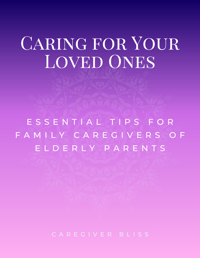Facing the end stages of hospice care can be an emotionally challenging and profound experience for both patients and their loved ones. As individuals approach the final chapters of life, it becomes crucial to have a comprehensive understanding of what to expect during this sensitive time.
In this article, we will explore the various aspects of the end stages of hospice, offering insights into the physical, emotional, and spiritual dimensions of this journey.
Physical Changes
As a person nears the end of life, there are several physical changes that may occur. While each individual's experience is unique, common manifestations include a decrease in energy levels, increased fatigue, changes in breathing patterns, and a decline in appetite. Additionally, patients may experience fluctuations in body temperature and changes in skin color. It is important for caregivers and loved ones to be aware of these physical changes, as they can offer comfort and support through appropriate measures such as pain management and maintaining a peaceful environment.
Emotional Support
Emotional support is paramount during the end stages of hospice care. Patients and their families often grapple with a range of emotions, including anxiety, sadness, and fear. Open communication and providing a listening ear can make a significant difference in the emotional well-being of everyone involved. Social workers and counselors within the hospice team can offer guidance and resources to help individuals cope with the emotional challenges of saying goodbye.
Spiritual Considerations
For many individuals, the end stages of life prompt a deep reflection on spiritual beliefs and values. Hospice care often involves addressing spiritual needs and providing support for individuals seeking solace and meaning. Chaplains or spiritual advisors may be available to assist in navigating these aspects of the journey, offering comfort and companionship as individuals explore their spiritual beliefs.
Family Dynamics
The end stages of hospice care also bring forth changes in family dynamics. Caregivers may experience a mix of emotions, ranging from grief to a sense of relief. It is essential for family members to communicate openly, share their feelings, and work together to provide the best possible support for their loved one. Hospice care teams can facilitate family meetings to address concerns, share information, and ensure that everyone is on the same page regarding the care plan.
Bereavement Support
As the end stages of hospice care transition into bereavement, ongoing support is crucial for grieving family members. Hospice providers often offer bereavement services, including counseling and support groups, to help individuals navigate the grieving process. This support can extend beyond the immediate loss, providing a network for individuals to lean on as they adjust to life without their loved one.
Conclusion
The end stages of hospice care are a poignant and complex time, marked by physical, emotional, and spiritual changes. Understanding what to expect during this journey can empower both patients and their loved ones to face the challenges with compassion and resilience. By embracing open communication, seeking emotional and spiritual support, and fostering a supportive environment, individuals can find solace in the midst of a profoundly meaningful and challenging chapter in life.
Share your thoughts and experiences in the comments section below. Your insights can contribute to a broader conversation about the complexities of the end stages of hospice care, providing valuable perspectives for others who may be going through a similar journey. Let your voice be a source of comfort and understanding in this space as we come together to discuss and support one another.
Free Guide:
Caring For Your Loved Ones
 Attention family caregivers! Are you struggling to provide the best care for your aging parents? Don't worry, we've got you covered.
Attention family caregivers! Are you struggling to provide the best care for your aging parents? Don't worry, we've got you covered.
Download our free guide, Caring for Your Loved Ones: 10 Essential Tips for Family Caregivers of Elderly Parents, and unlock the secrets to becoming an exceptional caregiver.
From adapting the home environment to promoting independence, this invaluable resource will transform your caregiving experience into a more rewarding journey. Don't wait—give your loved ones the care they deserve, and download your free copy today!

